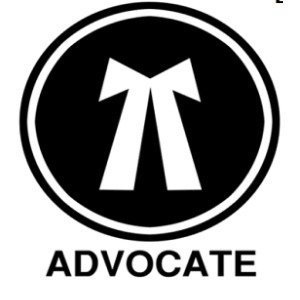Best Restructuring & Insolvency Lawyers in Ramallah
Share your needs with us, get contacted by law firms.
Free. Takes 2 min.
List of the best lawyers in Ramallah, Palestine
About Restructuring & Insolvency Law in Ramallah, Palestine
Restructuring and insolvency law in Ramallah, Palestine, governs the processes by which businesses and individuals address serious financial distress. This field of law provides frameworks for debt reorganization, liquidation, and asset distribution in cases where obligations can no longer be met. Palestine’s legal system incorporates aspects of Ottoman, Jordanian, Egyptian and Palestinian laws, which can make the process of restructuring or insolvency distinct from other jurisdictions in the region. Local courts in Ramallah have jurisdiction over insolvency matters concerning entities operating within the city or the surrounding areas.
The aim of restructuring is often to allow businesses to continue operating and preserve as many jobs and assets as possible while reaching equitable agreements with creditors. Insolvency, on the other hand, generally involves winding-up or liquidating assets to pay off creditors in a manner determined by law.
Why You May Need a Lawyer
Facing financial distress can be overwhelming, whether you are an individual or a business owner. Here are some situations where legal assistance is crucial:
- You are unable to pay debts as they become due
- You are facing creditor lawsuits, asset seizures, or enforcement actions
- Your business needs to negotiate with creditors or restructure existing obligations
- You are considering filing for insolvency, voluntary liquidation, or want to protect certain assets
- You are a creditor whose debtor is facing insolvency, and you want to protect your interests
- You have received legal notices about bankruptcy or insolvency proceedings
- You are seeking to understand the legal consequences of insolvency for contracts, guarantees, or personal liability
A lawyer specializing in restructuring and insolvency can guide you through negotiations, court procedures, protect your rights, and help you achieve the best possible outcome in a complex legal environment.
Local Laws Overview
Palestinian insolvency and restructuring matters are primarily governed by the Commercial Law No. 2 of 2014 for companies, alongside other legacy laws. Key aspects relevant to Ramallah include:
- Eligibility: Both individuals and companies can be subject to insolvency proceedings if they are unable to pay debts when due.
- Initiating Proceedings: Proceedings are usually initiated by a creditor, the debtor themselves, or the court. For companies, the board of directors may also initiate the process if corporate insolvency is at issue.
- Restructuring: The law allows for restructuring to take place as an alternative to liquidation. This involves formulating a plan to renegotiate debts and return the debtor to viability with the oversight of the court.
- Asset Protection: Upon beginning insolvency proceedings, certain automatic legal protections come into play limiting creditor actions and seizures against the debtor’s property.
- Role of the Court: The local courts in Ramallah have significant discretion in managing insolvency and restructuring cases, appointing trustees, and approving plans.
- Priority of Payments: Palestinian law sets out orders of priority for repayment among creditors, with secured creditors and employees often taking precedence over unsecured claims.
- Cross-border Issues: Palestine has limited legal provisions for recognizing foreign insolvency decisions, making cross-border business insolvency complex.
Understanding how these laws apply requires careful analysis, especially for complex business cases or where foreign creditors are involved.
Frequently Asked Questions
What is the difference between restructuring and insolvency?
Restructuring is a process where a debtor and creditors negotiate new payment terms to try and allow the business or individual to continue operating. Insolvency is a legal status where the debtor cannot pay debts as they fall due, and may involve asset liquidation.
Can individuals file for insolvency in Ramallah?
Yes, individuals who are unable to pay their debts can initiate insolvency proceedings. The court will then review the case to determine appropriate remedies such as liquidation or a debt repayment plan.
What is required to start a restructuring process?
A debtor or creditors must file an application with the relevant court, providing evidence of financial distress. A proposed plan for restructuring and repayment should be included, subject to court and creditor approval.
What happens to my assets if I am declared insolvent?
Upon a declaration of insolvency, your assets may be frozen and subjected to liquidation to pay creditors. However, certain personal or necessary assets may be protected by law, subject to court ruling.
How are creditors paid during insolvency?
Payments to creditors follow a legal order of priority. Secured creditors and employees are often paid first, followed by unsecured creditors. Any remaining assets are distributed according to the court’s directions.
How long does a typical insolvency case last in Ramallah?
Duration varies depending on case complexity, number of creditors, and court schedules. Simple liquidations may take months, while major business restructurings can last one year or more.
Can creditors take legal action once insolvency proceedings begin?
Generally, legal actions and enforcement by creditors are paused once formal insolvency proceedings are initiated, pending court review and arrangements.
What role does the trustee play in insolvency cases?
A trustee, appointed by the court, manages the debtor’s assets, oversees the liquidation or restructuring process, distributes funds to creditors, and reports to the court.
Are insolvency proceedings in Ramallah public?
Yes, insolvency and restructuring proceedings are typically public and may be recorded on official registers to provide notice to creditors and other stakeholders.
Can foreign creditors participate in insolvency cases in Ramallah?
Foreign creditors can assert claims, but the process can be more complex due to limitations in local law regarding recognition of foreign judgments and coordination with other legal systems.
Additional Resources
If you require more information or support regarding restructuring and insolvency in Ramallah, consider the following organizations and bodies:
- Palestinian Bar Association - Provides listings of registered lawyers with expertise in restructuring and insolvency.
- Palestinian Ministry of National Economy - Offers guidance on business regulations and insolvency laws.
- Local Chambers of Commerce - Can provide information about business-related procedures in Ramallah.
- Ramallah Courts - The Economic Court handles many commercial disputes, including insolvency cases.
- Legal Aid Organizations - Certain NGOs in Ramallah provide pro bono or low-cost legal services for individuals and small businesses facing insolvency.
Next Steps
If you think you may need legal help regarding restructuring or insolvency in Ramallah, Palestine, consider the following steps:
- Gather all relevant financial documents, such as debt records, contracts, and asset lists.
- Contact a lawyer with experience in Palestinian commercial and insolvency law.
- Schedule a consultation to discuss your specific situation and get tailored legal advice.
- Be open and honest with your lawyer regarding your finances and obligations so they can recommend the best course of action.
- Follow court deadlines and procedures carefully if legal proceedings are initiated.
- Engage in good faith negotiations with creditors where possible, under your lawyer’s guidance.
Taking early legal advice can protect your rights, help you assess all available options, and maximize your chances of achieving a stable financial resolution.
Lawzana helps you find the best lawyers and law firms in Ramallah through a curated and pre-screened list of qualified legal professionals. Our platform offers rankings and detailed profiles of attorneys and law firms, allowing you to compare based on practice areas, including Restructuring & Insolvency, experience, and client feedback.
Each profile includes a description of the firm's areas of practice, client reviews, team members and partners, year of establishment, spoken languages, office locations, contact information, social media presence, and any published articles or resources. Most firms on our platform speak English and are experienced in both local and international legal matters.
Get a quote from top-rated law firms in Ramallah, Palestine — quickly, securely, and without unnecessary hassle.
Disclaimer:
The information provided on this page is for general informational purposes only and does not constitute legal advice. While we strive to ensure the accuracy and relevance of the content, legal information may change over time, and interpretations of the law can vary. You should always consult with a qualified legal professional for advice specific to your situation.
We disclaim all liability for actions taken or not taken based on the content of this page. If you believe any information is incorrect or outdated, please contact us, and we will review and update it where appropriate.













